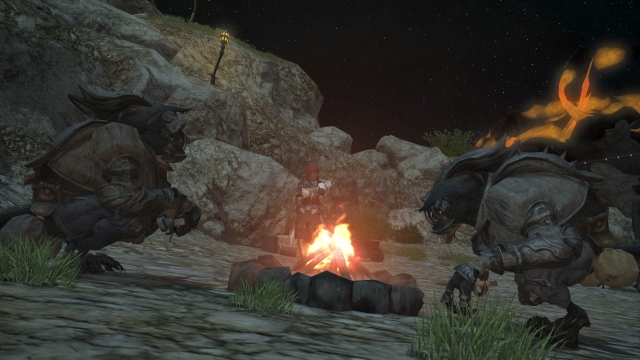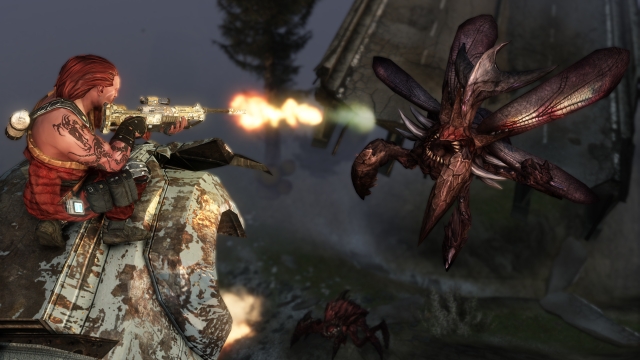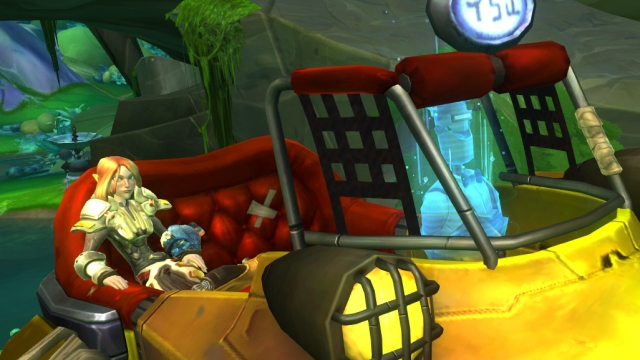If you’re playing online with other people, servers are kind of important. They’re the part of the network that allows you to actually do the whole “interacting with others” thing, after all. MMORPGs usually have different servers to facilitate different languages and locations as well as specific rulesets, so that players can either experience a more open PvP environment or a more roleplaying-heavy game. All of these things are important.
And almost all of these things will change.
Server changes are not wholly inevitable, but they’re pretty common with any long-running game. There are merges, there are rule changes, there are expansions that change the makeup of servers, there are new servers that your group is considering swapping to, and so forth. Unless you’re dealing with one of the handful of single-shard MMOs on the market, you will have to deal with server changes sooner or later. So let’s talk a little bit about how to deal with major changes on your home server.

Understanding the nature of the change
There are a lot of different things that can happen with servers, but for the purposes of this article we’re going to group them into two broad categories: mechanical changes and community changes.
Mechanical changes are things like a change to a server’s ruleset (say, from RP-only to RP-PvP), turning on an expansion’s features, rollbacks, and the like. Fundamentally, the population of the server has not significantly changed, but what the people on that server might value or be looking for has changed in a major way. Your guild’s main way of generating money may no longer be viable, or people might have more need to be in a guild than in the past. But the community is still present, and the people you knew before are still around and active.
Community changes are usually server merges, but they can also include things like World of Warcraft‘s cross-realm zones, new chat modes, game integration, and so forth. These changes mean that the mechanics of the game likely aren’t changing significantly, but the people in the game will be different. During the all-too-common server merges, you’ll be seeing people you didn’t know before, often encountering traditions you didn’t know, and so forth. Or perhaps the servers will just be moved to a new location, affecting the ping rate of players in various ways.
Both of these will require some flexibility in dealing with a changing environment, but the bright side is that pretty much everyone else on your server will be dealing with the same issues at the same time. The down side, of course, is that this means you’re not necessarily all working together.

The economy will shift
Whenever you have a major server change, this is a constant. Your guild probably has a way of making money if you have a guild bank, or it has a way of having wealthier members provide some sort of necessary financing otherwise. That means providing income on a regular basis, and all of that is going to change when a major change happens.
When a mechanical change goes down, your economy is shifting because what was super-valuable before may or may not still have any value. Crafting ingredients that were hard to get before the expansion might still be hard to get, but the items they make may no longer be worthwhile. Community changes, on the other hand, mean that communities are all going to be dealing with a very different player makeup; there may be a larger or smaller number of people selling the same things, and depending on the differences of the existing server communities, differing emphasis will be put on certain items.
The smartest thing to do, then, is to prepare ahead of time. Sell the stuff your guild had been hoarding for a rainy day, make your money, and then pull back. Put a moratorium on money-making for a bit until you’ve seen how the new economy will shake out and what’s still valuable. You might miss out on an opportunity or two by being cautious, but you’ll also avoid sinking big money into something that might not pan out. If previously rare items are suddenly selling for a pittance, that doesn’t necessarily mean that you can make a killing; the value may never go back up, and you don’t want to be left holding the bag.
Hold back a little bit. Sure, you might miss a deal, but you might also miss out on buying a lot of things only to watch their value fall further.

Culture shock
With server merges, this is a big deal. The server has certain accepted rules about how things are done, usually, based on time and what’s worked. Rare enemies are pulled five minutes after the first sighting, for example. Quest enemies have a queue in place. New players learn the accepted rules of a given server or server cluster. But another server might have different rules, like only pulling an enemy after no one responds that they’re coming to kill it, and you have to deal with a server full of people who think that there are different behaviors which count as rude.
The usual effect for guilds is to dig in. “We’re from server A, and we’re doing things like server A has always done things!” And that’s a great way to ensure that you get left behind.
See, the fact is that once the merge happens, you’re not in server A or server B, you’re on server AB, and new rules need to be in place. So your best bet is to instead recruit people from the other server, welcome them, and understand the culture there. Use a mix of rules, and be flexible as things settle into place.
For mechanical changes, there’s less culture animosity, but there’s still some learning to be had as things no longer work the way they once did. Here, again, it’s a matter of having good behavior rules in place for your guild as you wait for an overriding cultural imperative to become dominant. As long as your guild does its best to be respectful, you may very well have a hand in shaping the server culture as a whole to be respectful and polite to other players.

Progression issues
This affects both sorts of changes equally, but in different ways. With culture changes, suddenly the top progression groups or the most competitive PvP groups are at odds with one another for that distinction; they’re pulling from the same crop of players. For mechanical changes, suddenly there’s a question of what progression actually matters, and whether or not progression actually ought to continue.
There’s no one-size-fits-all answer for this particular problem; a lot of push-and-pull is necessary. It’s important, for example, to evaluate where you are in progression when you’re getting close to the edge of a major change, and asking the important question about whether or not continuing is worth the effort. Remember that “no” is a valid effort; you could not want to compete in a more competitive environment or when the mechanics are shifting rapidly.
Most important is the matter of sticking by your guild’s focus. If you’re trying to focus on progress, continue to do so, but give yourself the space to change your lineup or experiment with new sorts of content. It may or may not be exactly what you had planned, but like all of these items, you need to be ready to roll with the changes.







Published: Aug 10, 2016 12:27 pm